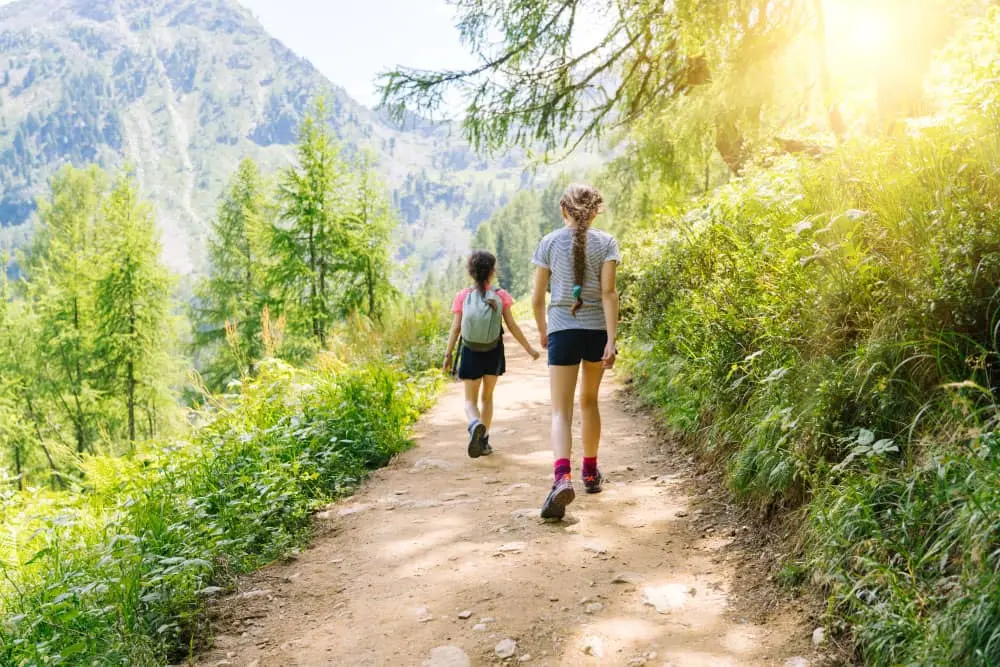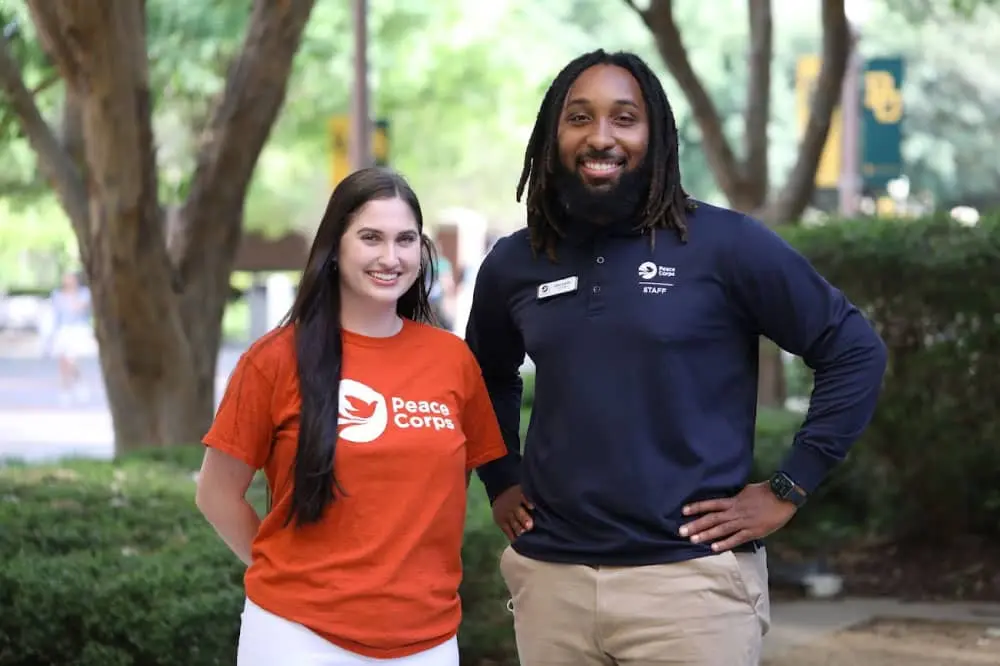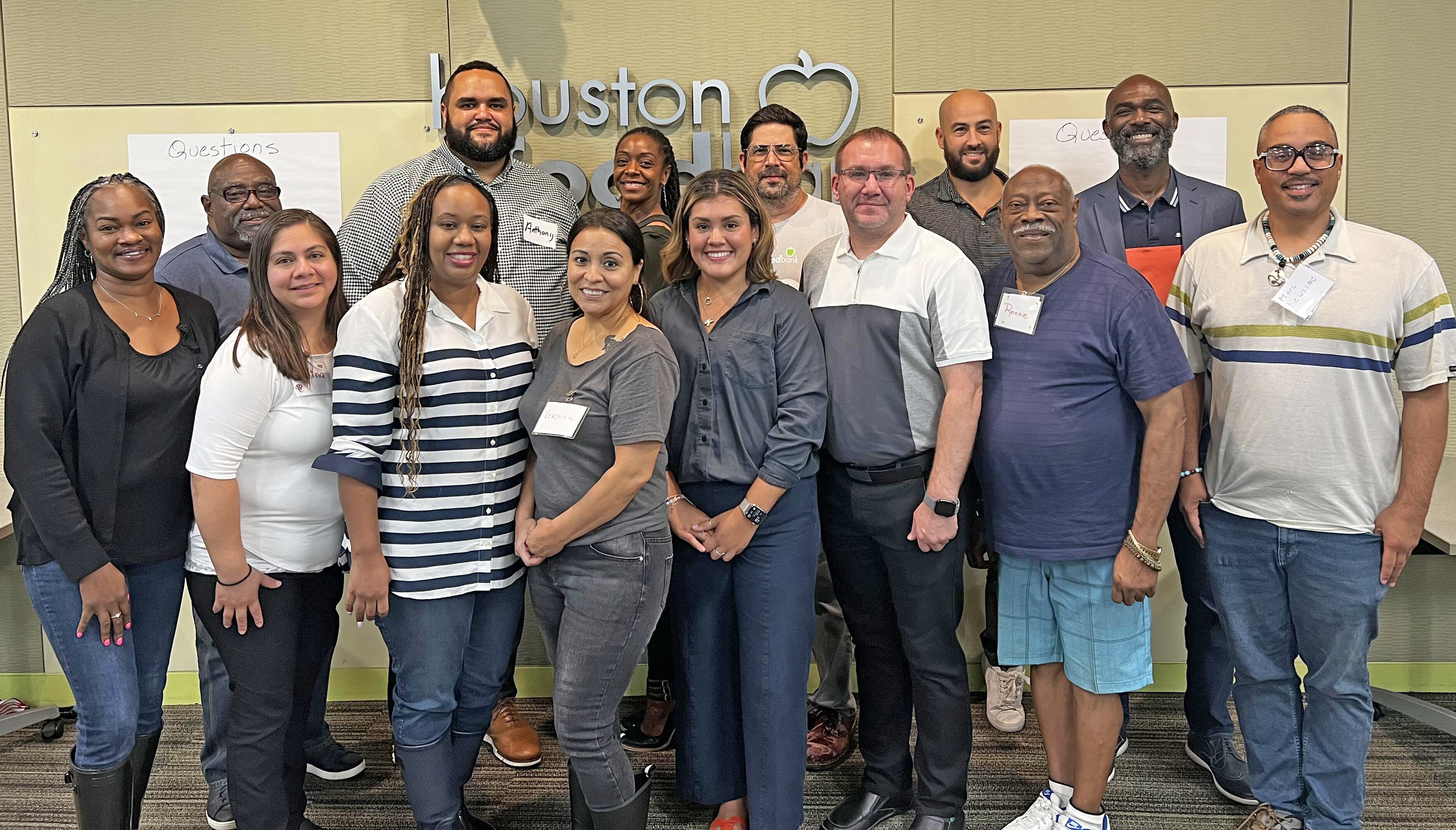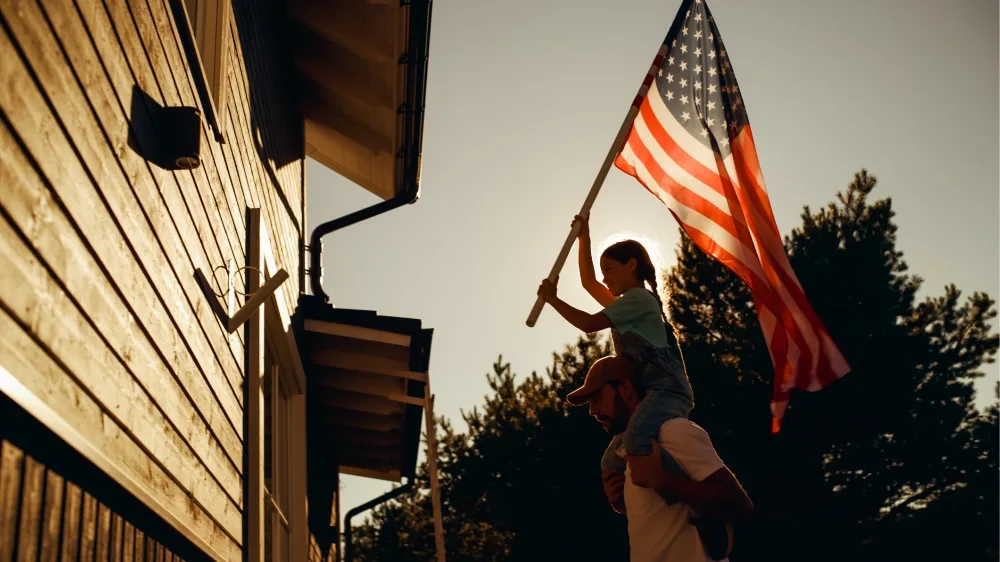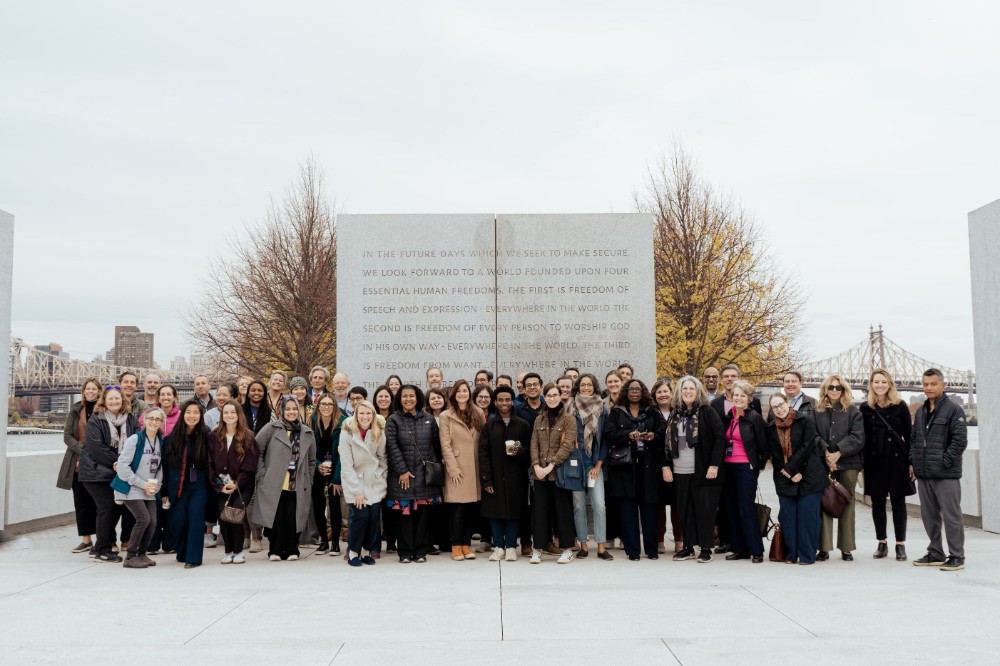Jillian Racoosin Kornmeier, MPH -
Apr 29, 2025
No One Talks About This Part: New Parenthood and the Search for Connection
No One Talks About This Part: New Parenthood and the Search for Connection
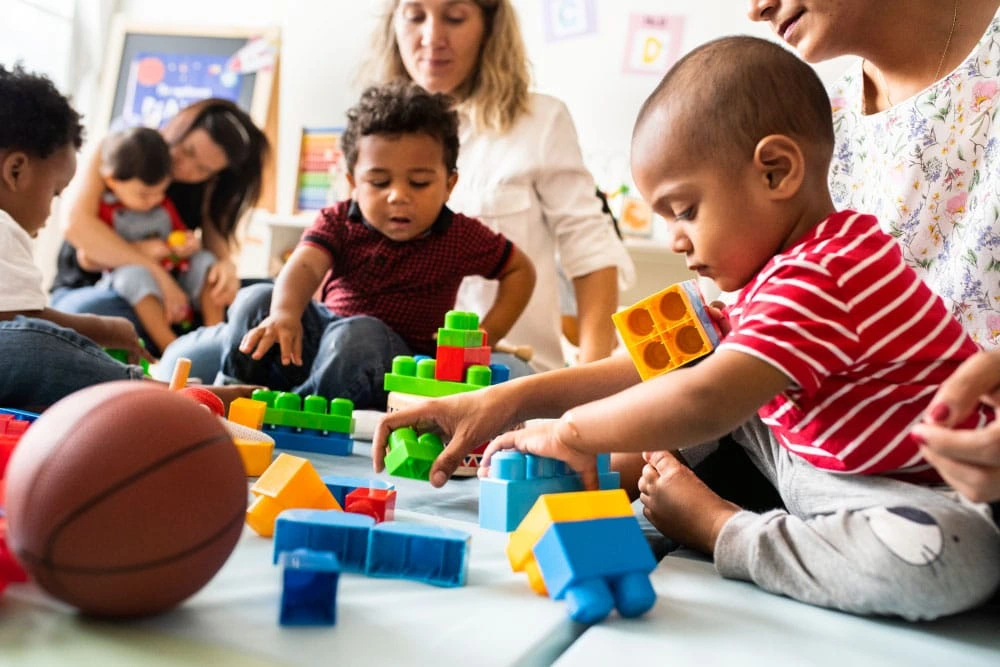
It’s been five months since we welcomed our beautiful son. He surprised us almost 4 weeks early with a complex birth, and spent his first Halloween in the NICU. Once the dust settled from his dramatic entrance, I sat on my couch holding my whole world in my arms and thought, I am so grateful. Then I thought, I am also really lonely.
As a working professional in the field of social connection, I am keenly aware of the evidence pointing to high risk groups experiencing social isolation and loneliness. Although perinatal and parental loneliness studies are limited, a 2022 scoping review found qualitative data that calls for concern. Across studies, the prevalence of loneliness in pregnancy and postpartum ranged from 32 to 100%. The CDC reported over 3.6 million live births in 2022, making the number of birthing parents and partners impacted by this exciting – yet challenging – time considerable.
I was not alone in this experience. In addition to the many Reddit threads I found on the topic, which included “I had no idea motherhood would feel so lonely” and “Staying at home with a baby is lonely and isolating”, the 2024 Surgeon General’s Advisory titled ‘Parents under Pressure’, made multiple mentions to the social isolation and loneliness of parents.
When reflecting on my own experience and the three vital componentsof social connection, I began to understand where this deficit was building.
Structure
Without a packed schedule of work, teaching, dinner with friends, date nights, and family gatherings, my social calendar suddenly dissipated, as did opportunities for stimulation and interaction with others. I was scared to bring the baby into the world of germs after his time in the NICU, I wasn’t cleared to drive due to my surgery, and my schedule surrounded my son and his needs. There were multiple weeks where I saw no onebesides my baby, my partner, and my immediate family.
Function
I was lucky to have mom friends (including my older sister going through this experience alongside me) checking in over text or facetime throughout the week. They were always there with a friendly piece of advice or listening ear, yet I severely missed in-person social support. At the end of the day I’d find myself having multiple texts building up unread, often mentally drained from the day’s endless cycle of feedings and changings, to respond in a way that felt authentic. I didn’t want to burden my stress or anxieties on anyone else; I really just wanted a hug. Author Lucy Jones, writesabout a similar feeling, “Not talking to adults for hours at a time, most days of the week, was a peculiar experience. I lost social skills and confidence”.
Quality
As sleep deprivation set in and my body became a vessel for my baby’s health and happiness, my partner and I started caring for him in shifts and spending less time with each other. It seemed like every conversation entailed talking about the last feed or the next feed, sleeping schedules, or what google said to do when we had a baby medical question. While we were physically in the same space together more than ever before (well, maybe COVID had us beat) the quality of our interactions was suffering.
While these feelings of loneliness and isolation didn’t magically disappear, over time I became more intentional with my behaviors and the heaviness began to lift.
The Healing Power of Social Connection
It takes a village
When I ended up in the hospital earlier than expected, we had close to nothing with us (lesson learned, it’s never too early to pack a hospital bag). We were incredibly lucky to have our family jump right in – bringing clothes, food, pillows, and more. And while leaving the hospital without our son was one of the hardest days of my life, I’ll never forget the grateful feeling of walking into our clean apartment – learning that my sisters went over to get things in order ahead of our arrival home. Our village continued to ask us how they could help make our days a bit easier. This included an entire day dedicated to my parents driving me from FedEx to the post office and then to UPS so I could mail the many returns I had built up. Whether it’s your family by blood or your chosen family, think about who might be in your village. Although my instinct was to say “no” to help as to not be a burden on others, my advice is…say yes! In a recent article on Motherly, soon-to-be mom Rachel is quoted, “The first step in creating an effective village is recognizing that you need other people…this ‘I can figure it all out by myself, I don’t need help from anyone’ is so detrimental to creating community.” Instead, practice generalized reciprocity—giving or receiving help without immediate expectation of return. You can always pay it forward at a later date.
About halfway through my pregnancy I was screened for perinatal mental health conditions and was pleasantly surprised to learn about the DC Mother-Baby Wellness Program. This program offers interventions such as care coordination, group or individual therapy, developmental screenings for infants, and more at no costduring pregnancy and postpartum thanks to the A. James & Alice B. Clark Foundation. Therapy and social support opportunities such as these can be incredibly helpful to create space to voice your feelings and work through the overwhelm.
Aware of my interest in the topic, a colleague sent me an article about the Philly Parenting Chat. What was started by a new mom in 2018 as a way to connect with others going through the same experience, quickly grew and became “a kind of underground regional network — part friendship circle, part consciousness-raising group– a prophylactic against isolation”. It’s very true that sometimes you just need someone to text at 3am who is also up struggling with a feed. This grassroots WhatsApp group is just one example of mothers supporting one another through the isolation and challenges of new parenthood.
Go for a walk
As soon as I felt up to walking beyond my front door, we instituted a daily midmorning family walk. It became an important ritual in our day, to get our son bundled up in his pram and face the outside world together. The fresh air, physical activity, and screen-less time together gave us a chance to reset with higher quality social connection. Even if we didn’t get out the door until noon, we made sure it happened as we always felt better when we returned.
Walking with friends was also a great solace during my leave and I was inspired by the Mom walk collective. When fellow mom Jamie quickly realized how lonely motherhood could be, she took to TikTok asking local moms to meet up for coffee and a walk. Her walks grew from 2 to 60+ moms in no time, and now has 350 city partners across the US and abroad.
Join a group IRL
In a recent national survey conducted by The Ohio State University Wexner Medical Center, about two-thirds (66%) of parents agreed the demands of parenthood sometimes or frequently feel isolating and lonely, and nearly 4 in 5 (79%) would value a way to connect with other parents outside of work and home. I was firmly in this camp.
After weeks of hiding out at home with our newborn, I was craving in-person connection. Around 7 weeks postpartum I took a chance attending a Baby and Me Yoga class nearby. While it was a shock to be around other people at first, it was amazing to be in a space with other moms going through the trenches. Our teacher Elizabeth created a sacred environment, free of judgment or expectation for what the hour might bring us or our children. Many of us returned week after week, soaking up the time we had to stretch our bodies and be present in community.
My sister had a great experience participating in a new mom group hosted by our place of worship (open to all new moms in the community, not only members). I anxiously awaited the next cohort to begin so that I could add another ‘place to go’ to my schedule. For 6 weeks, a group of 6 new moms got together on Wednesdays to check in with one another, ask the group for advice, and eat Trader Joe’s snacks. Aside from the great social support this opportunity afforded me, returning with my son to a ‘third place’ that holds so much meaning to me and my upbringing felt joyous and uplifting.
Give yourself grace
Emotions such as self-blame, guilt, and anxiety are common during this period. I remember feeling immense anxiety the first time I entered a new social setting postpartum. Do I know how to talk to people anymore? Who am I without my son in my arms? Trust that your inner voice is stronger than you think. I just kept repeating, “I can do this” throughout the night, and in fact I had a wonderful time. Whether it’s a brief pep talk in the mirror, a 5-minute gratitude meditation, or a spoon and pint of ice cream – find ways to show yourself grace.
As the weeks turned into months, my newly added identity as “mom” began to take shape. Before I knew it I walked into my son’s room and saw a glimmer of recognition pour over his face – and then a big bright smile. I smiled back even bigger.
For those who felt similar during this time, I’m curious what was most helpful for you? Is there a program or practice you would highlight?
~
A note to fathers and non-birthing parents and caregivers: First, thank you. Having a partner to experience this with is not only helpful but elicits a special forever bond. We know that the mental, physical, and social struggles that come from welcoming a baby into the world are felt by you as well. A sense of loneliness can be compounded by not feeling like you fit into mothers’ groups or support services offered. I hope you’ll send me a note on what helped you during this time, and any interventions or programs I can share with our audience.
If you think you might have postpartum depression or are struggling in the perinatal period, you are not alone. There are many resources to help including a few listed below.
- National Maternal Mental Health Hotline is free and confidential 24/7 at 1-833-TLC-MAMA
- Postpartum Support International https://www.postpartum.net/ or contact the help line at 1-800-944-4773
Jillian Racoosin Kornmeier, MPH is the Executive Director of the Foundation for Social Connection. In her role, Jillian is responsible for leading the direction of the Foundation’s operations and programs, including advancing social connection research and innovation.

